November 2018: Olive Tree

Volume II/Issue 31/November 2018


From The Editorial Desk:
The Christian and His Emotions: Joy, Happiness and Cheer
The Elusiveness of Joy
Someone has observed that the pursuit of joy and happiness is much like trying to catch a butterfly. When someone sets himself to “catch” joy it may well elude his most fervent pursuits, but if he minds his business and sets himself to profitable pursuits, it will come and rest on his shoulder. When a person sets out to find happiness he is thinking about himself. His world grows more and more narrow. He fails to bring glory to God which is the primary reason he was created. He stops thinking about how he can help his fellow man. All that matters is, “How can I be happy?” Trying to make oneself feel joy, happiness or even amusement is a vain experience. Meditate on the following verses from Solomon’s experience.
I said in my heart: I will go, and abound with delights, and enjoy good things. And I saw that this also was vanity.
Laughter I counted error: and to mirth I said: Why art thou vainly deceived?
I thought in my heart, to withdraw my flesh from wine, that I might turn my mind to wisdom, and might avoid folly, till I might see what was profitable for the children of men: and what they ought to do under the sun, all the days of their life.
I made me great works, I built me houses, and planted vineyards,
I made gardens, and orchards, and set them with trees of all kinds,
And I made me ponds of water, to water therewith the wood of the young trees,
I got me menservants, and maidservants, and had a great family: and herds of oxen, and great flocks of sheep, above all that were before me in Jerusalem:
I heaped together for myself silver and gold, and the wealth of kings, and provinces: I made me singing men, and singing women, and the delights of the sons of men, cups and vessels to serve to pour out wine:
And I surpassed in riches all that were before me in Jerusalem: my wisdom also remained with me.
And whatsoever my eyes desired, I refused them not: and I withheld not my heart from enjoying every pleasure, and delighting itself in the things which I had prepared: and esteemed this my portion, to make use of my own labour.
And when I turned myself to all the works which my hands had wrought, and to the labours wherein I had laboured in vain, I saw in all things vanity, and vexation of mind, and that nothing was lasting under the sun (Ecclesiastes 2:1-11)
The Choice to Rejoice
It is human nature to be happy when things are going well, and to become vexed when they don’t. But the Scriptures teach us to choose to rejoice, and to be happy in the midst of trying situations. This command is repeated so often that one can easily sense the importance given it in both the Old and New Testaments. There is tremendous power made available in our lives when we choose joy. Instead of being a victim to undesirable circumstances, we become a victor over them.
For the fig tree shall not blossom: and there shall be no spring in the vines. The labour of the olive tree shall fail: and the fields shall yield no food: the flock shall be cut off from the fold, and there shall be no herd in the stalls.
But I will rejoice in the Lord: and I will joy in God my Jesus.
The Lord God is my strength: and he will make my feet like the feet of harts: and he the conqueror will lead me upon my high places singing psalms.
(Habakkuk 3:17-19 )
My brethren, count it all joy, when you shall fall into divers temptations; Knowing that the trying of your faith worketh patience. (James 1:2-3)
Joy as a Response of Right Choices
According to the Scriptures not only are we to choose to rejoice but joy is a natural by product of right choices. The opposite is also true. If we neglect these choices, then the corresponding joy will not be given to us.
Thou hast made known to me the ways of life, thou shalt fill me with joy with thy countenance: at thy right hand are delights even to the end. (Psalm 16:11)
The justices of the Lord are right, rejoicing hearts: the commandment of the Lord is lightsome, enlightening the eyes. (Psalm 19:8)
The Benefits of a Joyful Outlook
When we have a cheerful outlook in life, we will reap many rewards. Some of these are physical. People who are happy as a rule experience better health. They escape many physical illnesses, and other nervous disorders common to complainers and grumblers. But even beyond the physical, happy persons are free to reach out and help others. Having a life turned outward and upward, gives them the resources to be an assistance even when they have little themselves. This in turn qualifies them for God’s rewards.
All the days of the poor are evil: a secure mind [and a merry heart] is like a continual feast. (Proverbs 15:15)
A joyful mind maketh age flourishing: a sorrowful spirit drieth up the bones. (Proverbs 17:22)
Avoiding the Snare of Foolishness
What needeth a man to seek things that are above him, whereas he knoweth not what is profitable for him in his life, in all the days of his pilgrimage, and the time that passeth like a shadow? Or who can tell him what shall be after him under the sun?
A good name is better than precious ointments: and the day of death than the day of one's birth.
It is better to go to the house of mourning, than to the house of feasting: for in that we are put in mind of the end of all, and the living thinketh what is to come.
Anger is better than laughter: because by the sadness of the countenance the mind of the offender is corrected.
The heart of the wise is where there is mourning, and the heart of fools where there is mirth.
It is better to be rebuked by a wise man, than to be deceived by the flattery of fools. (Ecclesiastes 7:1-6 )
But fornication, and all uncleanness, or covetousness, let it not so much as be named among you, as becometh saints: Or obscenity, or foolish talking, or scurrility [humorous insults], which is to no purpose; but rather giving of thanks. (Ephesians 5:3-4)
Next Month: The Christian and His Emotions; Envy, Jealousy and Covetousness

Act Of Submission To The Will of God
Before making this act, read it and meditate on the important points it contains.
My God, I believe so firmly that Thou watchest over all who hope in Thee, and that we can want for nothing when we fully rely on Thee in all things, that I am resolved no longer to have any anxieties, and to cast all my cares upon Thee. ‘In peace and in the self-same I shall sleep and I shall rest; for Thou, O Lord, has singularly settled me in hope!’
I may lose all my material things; sickness may take from me my strength to do Your work; I may even lose Thy grace by sin; but my trust shall never leave me and I shall preserve it to the last moment of my life and no power shall wrest that from me. ‘In peace and in the self-same I shall sleep and I shall rest!’
Let other seeks peace and happiness in their money and their talent; let them trust in the purity of their lives, the severity of their sacrifices, the number of their works, the many whom they have brought to a knowledge of the truth, the calls they have made, the talks they have given, the number whom they have helped, yes, the length of their prayers; as for me, O my God, in my confidence itself lies all of my hopes and my trust. ‘For Thou, O Lord, singularly hast settled me in hope.’ And I know beyond any doubt that my confidence can never be in vain. ‘No one has ever hoped in the Lord and been confounded.’
I know, alas, I know but too well that I am weak and changeable and helpless, that my life, all of it, has been unmanageable. I know the power of temptation against the strongest virtue. I have seen the strong fall and the pillars totter; but these things alarm me not. For it is precisely because I am so absolutely powerless that I become so strong in You and this trust in You shall endure, because Thou Thyself will sustain it in me.
Finally I know that my confidence in Thee cannot exceed Thy bounty; therefore I shall always expect from Thy goodness alone and because of no merit of mine, strength in every struggle; grace in every temptation; victory in spite of my weakness; and peace of soul in every disturbance.
Dear God, our Father, my will and my life I consecrate entirely to Thee this day; my eyes, my ears, my mouth, my heart, my whole being without reserve-wherefore, dear Father, as I am Thine own keep me and guard me as Thy property and possession, always and in all things. Through Christ our Lord. Amen.
Cast Your Care On The Lord
My God, I believe so firmly that Thou watchest over all who hope in Thee, and that we can want for nothing when we fully rely on Thee in all things, that I am resolved no longer to have any anxieties, and to cast all my cares upon Thee. ‘In peace and in the self-same I shall sleep and I shall rest; for Thou, O Lord, has singularly settled me in hope!’
“Cast thy care upon the Lord, and he shall sustain thee: he shall not suffer the just to waver for ever.” (Psalms 54:23)
I may lose all my material things; sickness may take from me my strength to do Your work; I may even lose Thy grace by sin; but my trust shall never leave me and I shall preserve it to the last moment of my life and no power shall wrest that from me. ‘In peace and in the self-same I shall sleep and I shall rest!’
Job (1:21) said: “And said: Naked came I out of my mother's womb, and naked shall I return thither: the Lord gave, and the Lord hath taken away: as it hath pleased the Lord so is it done: blessed be the name of the Lord.”
Do Not Trust In Yourself
Let other seeks peace and happiness in their money and their talent; let them trust in the purity of their lives, the severity of their sacrifices, the number of their works, the many whom they have brought to a knowledge of the truth, the calls they have made, the talks they have given, the number whom they have helped, yes, the length of their prayers; as for me, O my God, in my confidence itself lies all of my hopes and my trust. ‘For Thou, O Lord, singularly hast settled me in hope.’ And I know beyond any doubt that my confidence can never be in vain. ‘No one has ever hoped in the Lord and been confounded.’
Jesus spoke the parable of the Pharisee and Publican to those who “trusted in themselves”. (Luke 10:9-14) We should do good works, but we should not rely on our good works. Rather, we must rely on Almighty God, which is why we must be totally conformed to His holy will. How many have damned themselves, because they refused God something, although they did great works? Saint Teresa of Avila was shone the place prepared for her in hell, if she had not given Jesus something He had asked for.
I know, alas, I know but too well that I am weak and changeable and helpless, that my life, all of it, has been unmanageable. I know the power of temptation against the strongest virtue. I have seen the strong fall and the pillars totter; but these things alarm me not. For it is precisely because I am so absolutely powerless that I become so strong in You and this trust in You shall endure, because Thou Thyself will sustain it in me.
Finally I know that my confidence in Thee cannot exceed Thy bounty; therefore I shall always expect from Thy goodness alone and because of no merit of mine, strength in every struggle; grace in every temptation; victory in spite of my weakness; and peace of soul in every disturbance.
Dear God, our Father, my will and my life I consecrate entirely to Thee this day; my eyes, my ears, my mouth, my heart, my whole being without reserve-wherefore, dear Father, as I am Thine own keep me and guard me as Thy property and possession, always and in all things. Through Christ our Lord. Amen.
We need to take all of this to heart, because we need to give ourself completely to Almighty God without reserve.

Giving Thanks
November is the month in which we celebrate the American holiday of "Thanksgiving." As Christians, we are certainly always called to be thankful for the many blessings we enjoy in life. For me personally, being thankful took on a new meaning back in 2015. Thanksgiving morning that year I woke up to my cell phone ringing around 6:00 AM that morning. It was the Nursing Home where my mother was at after just coming out of the hospital prior to that. When I saw the phone number, I knew that it was the nursing home. My mind quickly formulated that my mother must have fallen or perhaps her medicine was giving her problems. Or perhaps they were calling me to tell me that they had to take my mother back to the hospital again. Many things occurred quickly in my mind before I answered the phone. When I picked up the phone, it was the nurse on duty there at the nursing home. She first apologized for calling so early in the morning, especially it being Thanksgiving morning. But the words she spoke next struck me to the core. She told me that she was very sorry to tell me this but that my mother had just passed away. Her words devastated me. Yes, my mother had been in and out of the hospital. Yes, my mother had been ill. But I was not prepared in the least for the news she told me in regards to my mother. On Thanksgiving, nonetheless. As I say, I was not prepared whatsoever for this news.
The fact that this event happened on Thanksgiving caused me to seriously reflect on the fact that my mother gave me so much in my life to be thankful for. Obviously, first and foremost, my mother gave me life when she gave birth to me. She carried me in her womb for nine months and then carried me in her arms afterward. She supported me . . . loved me . . . sustained me. She worked two jobs while I was growing up so that I could have the things she never had. She counseled me . . . gave me advice . . . helped me learn life-lessons. She gave me the wonderful gift of having respect and showing respect to others. Especially in the day and age when there seems to be so much selfishness and so much egotism where the whole world seems to revolve around "me." My mother taught me lessons on a daily basis not only by the words that came out of her mouth but also by the actions she showed me the way she led her life. I could go on and on and on about the many wonderful things my mother did for me but I am sure if you are reading this you can say the same thing about your mother . .. your father . . . your grandparents . . . and aunt, an uncle . . . . whoever shows care for you. Whoever loves you. Whoever wants the best for you and loves you unconditionally. Again, the fact that my mother died on Thanksgiving morning really helped me highlight me being thankful for my mother's life; the life she gave me; and the many blessings she worked so hard to give me.
In so many ways, we need to always show gratitude and thanksgiving to Our Heavenly Father. So often, and again I am speaking to myself here, we get so busy with life that we forget to thank God for the many blessings that He shows us. "O sing unto the Lord a new song; for He hath done marvellous things: His right hand, and His holy arm, hath gotten Him the victory." (Psalm 98:1) We should be joyful. We should be thankful. Not only, as human beings, do we tend to forget to thank God for our blessings but we also tend to focus on the negative in life. Instead of focusing on negative, we need to make a point to thank God for His blessings. "O give thanks unto the Lord; call upon His Name: make known His deeds among the people. Remember His marvellous works that He hath done." (Psalm 105:1) God has blessed us so much with the wonderful gift of life that He has bestowed upon each one of us. He sustains us through the food which we enjoy . . . the roof over our head . . . He gives us assistance when we are in trouble. He guides us and leads us to new life through His Son's Sacrifice on the Cross. And through that Sacrifice we are given the gift of forgiveness of our sins. A feat that none of us could never have done ourself. It is only through Christ that our sins are forgiven. It is only through Christ that we have hope of eternal salvation. We just need to say "Yes" to Christ.
Thus, this Thanksgiving, let us set aside a special thanksgiving to thank God for all the blessings He has shown to us. Let us thank Him for everything He does for us on a daily basis. "By Him therefore let us offer the sacrifice of praise to God continually, that is, the fruit of our lips giving thanks to His Name." (Hebrews 13:15)

The Funny Pharmacy
A joyful mind maketh age flourishing: a sorrowful spirit drieth up the bones. - Proverbs 17:22


Was Vatican II the Beginning of the Crisis in the Church?
Many date the problems in the Catholic Church to the Second Ecumenical Council of the Vatican, called by Antipope John XXIII-II, and the liturgical changes that flowed from its spirit.
On December 4, 1963, Vatican II issed the decree Sacrosanctum concilium on the liturgy. Even before the close of the Council in 1965, supporting instructions began to be issued to implement this decree and a series of changes in the Mass, Rites of the Sacraments and the liturgy as a whole began to be implemented. As these became more radical, people began to notice them and begin to take action. For this reason, this time period of the changes as they came to be called from 1960 until 1972, when the Novus Ordo Missae (New Rite of the Mass) was fully implemented and the Rites of the Sacraments had all been substantially changed, except for Baptism, came to be identified as the beginning of the Crisis in the Church.
First of all the liturgical changes, which were a disaster, are only a symptom of a far deeper problem.
Much can be said on these liturgical changes, but they are only the tip of the iceberg.
Above we placed a date of 1960, when Antipope John XXIII-II issued the decree Rubricarum Instructum. Although there is nothing objectionable in the decree itself, the principle upon the changes made at the time are dubious at best. The revision of the calendar denigrated the Blessed Virgin Mary, demoting some of her feasts to mere commemorations. It also removed some feasts as useless repetitions, a principle repeated in Vatican II: “The rites should be distinguished by a noble simplicity; they should be short, clear, and unencumbered by useless repetitions; they should be within the people's powers of comprehension, and normally should not require much explanation.” (Paragraph 34 of Sacrosanctam concilium) A supporting decree to Rubricarum Instrucutm said historical lessons of the Breviary needed to be corrected to insure of their historical accuracy. Also some feasts were removed as useless repetitions as well. And so the spirit of Modernism was now becoming an official part of the Church.
However the rottenness that led to Vatican II had been working for over a century. It is said that the Devil told St. John Vianney, “If there were three such priests as you, my kingdom would be ruined.” Consider this well. The first conclusion is that there were not three priests as zealous as Saint John Vianney. The rottenness was already happening. Although we can trace the problems to before the Protestant Revolt nearly five centuries ago, it became worse in the 19th century with the heresies of Liberalism and Modernism.
Liberalism begat Modernism as a bastard child.
In his Encyclical, Pascendi, against Modernism in 1907, Pope Saint Pius X warned: “That We make no delay in this matter is rendered necessary especially by the fact that the partisans of error are to be sought not only among the Church's open enemies; they lie hid, a thing to be deeply deplored and feared, in her very bosom and heart, and are the more mischievous, the less conspicuously they appear. We allude, Venerable Brethren, to many who belong to the Catholic laity, nay, and this is far more lamentable, to the ranks of the priesthood itself, who, feigning a love for the Church, lacking the firm protection of philosophy and theology, nay more, thoroughly imbued with the poisonous doctrines taught by the enemies of the Church, and lost to all sense of modesty, vaunt themselves as reformers of the Church; and, forming more boldly into line of attack, assail all that is most sacred in the work of Christ, not sparing even the person of the Divine Redeemer, whom, with sacrilegious daring, they reduce to a simple, mere man.” 1 He realized that The Enemy had already begun infiltrating the Church.
And we should immediately clarify who The Enemy is. Saint Paul tells us: “For our wrestling is not against flesh and blood; but against principalities and power, against the rulers of the world of this darkness, against the spirits of wickedness in the high places.” 2 So our real enemy is the Devil, not our fellow men. However, we should know that some people work willingly with the Devil for the destruction of the Devil's main enemy, the Church of God, the Catholic Church.
Many look at the various people involved, and consider they are The Enemy. They may be working with The Enemy, but they are poor souls in need of our prayers for their conversion.
Read Carefully
Joseph Ratzinger, later Benedict XVI wrote: ‟For believers, it was a remarkable phenomenon that their bishops seemed to show a different face in Rome from the one they wore at home. Shepherds who had been considered strict conservatives suddenly appeared to be spokesmen for progressivism.” 3
First Joseph Ratzinger is saying that the bishops had been looking Catholic at home, but when they got to Vatican II, they realized that this was no longer necessary, as the Papacy had been usurped by John XXIII. Basically, while the cat is away the mice will play. In other words, they had already determined to betray our Lord Jesus Christ, but were awaiting the appropriate time. They had already been corrupted by the world, the flesh and the devil, but especially by The Enemy.
We have discussed the infiltration of the Catholic Church. The Enemy works through Secret Societies, such as the Masons, the Illuminati, the Rosicrucians, the Priory of Zion, and even certain elements of Jews. (To call this a Jewish Conspiracy is to limit the operations of The Enemy. This is a trap many have fallen in to with disastrous consequences.) Even the Communists sent in covert operatives to assist The Enemy. Pope Saint Pius X knew these agents were at work and attempted to halt their activity, but was unsuccessful.
But to lay the blame for this crisis at the feet of those men who dedicated their lives to destroying the Catholic Church is a great error.
Actually the main problems were the bishops and priests, who lived a worldly life.
They failed to teach their flocks how to pray fervently, because they themselves were lukewarm. “But because thou art lukewarm, and neither cold, not hot, I will begin to vomit thee out of my mouth.” (Apocalypse 3:16) All Christians must be on fire with the love of God. Most had let their light go out. “No man lighteth a candle, and putteth it in a hidden place, nor under a bushel; but upon a candlestick, that they that come in, may see the light.” (Luke 11:23) Bishops and priests, who are supposed to be the leaders of the light of the world, (Matthew 5:14) let their lamps go out like the foolish virgins. (Matthew 25:1-13)
Vatican II was the culmination of centuries of work, which began in earnest in the fifteenth century with Huss and Wycliffe. Their spiritual children, beginning with Martin Luther, started the Protestant Revolt, separating millions from Jesus Christ's Church. And this continued with heresies, such as Jansenism and Gallicanism in the seventeenth century. The eighteenth century saw the foundation of the first Constitutionally atheistic country in history, the United States and at the same time the French Revolution, both of which declared the rights of man. These two revolts declared that man has a right to practice whatever religion he pleases and that the government can in no way interfere with this right. In other words, everyone now has the right to be wrong and to preach falsehood to any and all who will listen.
Pope Pius IX reminded us of the principle that error has no rights, nor should it ever have rights. At best it may be tolerated to prevent some worse evil. However, we must always remember that error is an evil.
Vatican II declared the doctrine that error has rights in the Declaration on Religious Freedom, Dignitatis Humanae. “This Vatican Council declares that the human person has a right to religious freedom. This freedom means that all men are to be immune from coercion on the part of individuals or of social groups and of any human power, in such wise that no one is to be forced to act in a manner contrary to his own beliefs, whether privately or publicly, whether alone or in association with others, within due limits. The council further declares that the right to religious freedom has its foundation in the very dignity of the human person as this dignity is known through the revealed word of God and by reason itself. This right of the human person to religious freedom is to be recognized in the constitutional law whereby society is governed and thus it is to become a civil right.”
Pope Pius IX condemned this in the Syllabus of Errors: “79. Moreover, it is false that the civil liberty of every form of worship, and the full power, given to all, of overtly and publicly manifesting any opinions whatsoever and thoughts, conduce more easily to corrupt the morals and minds of the people, and to propagate the pest of indifferentism. -- Allocution "Nunquam fore," Dec. 15, 1856.” And “77. In the present day it is no longer expedient that the Catholic religion should be held as the only religion of the State, to the exclusion of all other forms of worship. -- Allocution "Nemo vestrum," July 26, 1855.” And further: “78. Hence it has been wisely decided by law, in some Catholic countries, that persons coming to reside therein shall enjoy the public exercise of their own peculiar worship. -- Allocution "Acerbissimum," Sept. 27, 1852.”
In his book, Les Principe des Theologie Catholique, Joseph Ratzinger states: ‟Let us content ourselves here with stating that the text [of the Vatican II Constitution, Gaudium et spes] plays the role of a counter-Syllabus to the measure that it represents an attempt to officially reconcile the Church with the world as it had become after 1789.” What Ratzinger is saying is that Vatican II changed the errors condemned in the Syllabus of Errors by Pope Pius IX into truth, which is impossible. Can two plus two equal four a century ago and twenty-two today?
Truth cannot change, but this is what Vatican II said. However, the seeds of this were planted long ago, and they have now grown into a large tree. Pope Saint Pius X condemned the errors of Modernism and his predecessor Pope Pius IX also condemned these errors as have other Popes. As we have seen, Pope Saint Pius X knew that these errors were held not only by those outside of the Church, but by those in her very bosom. Unfortunately his efforts to rid the Church of these wolves in sheep's clothing (Matthew 7:15) was unsuccessful and over the next half of a century they moved forward and were able to call the Council, which is falsely called Vatican II. It is not a successor to the only Vatican Council held in 1869-70, but a convention of heretics much like the Jansenist Synod of Pistoia held several centuries earlier. In fact, some of the errors of the Synod of Pistoia can be found also in Vatican II.
1 Pascendi, Pope Saint Pius X, September 8, 1907, paragraph 2
2 Ephesians 6:12
3 Milestones, page 132

The Pope Speaks: November 2018
Retire In Silence
In the Breviary at Prime on ferial days after Epiphany and Pentecost the Little Chapter is inspired by Zacharias 8:19: “Love ye peace and truth says the Lord Almighty.” Thus the clergy and religious are reminded of this important concept throughout the year. Notice that in the Breviary peace comes before truth. In Zacharias, the order is truth and peace. The church in her wisdom has put peace first, because we cannot understand and take the truth to heart, until peace reigns within our hearts.
The prophet Osee (2:14) tells us: “Therefore, behold I will allure her, and will lead her into the wilderness: and I will speak to her heart.” The Latin word used here and in Apocalypse 12:6 is solitudinem. God leads us to solitude and then He can speak to our heart.
We also think of the wilderness with Saint John the Baptist: “As it was written in the book of the sayings of Isaias the prophet: A voice of one crying in the wilderness: Prepare ye the way of the Lord, make straight his paths.” (Luke 4:3) “The voice of one crying in the desert: Prepare ye the way of the Lord, make straight in the wilderness the paths of our God.” (Isaias 40:3) The words desert and solitude are used interchangably in Sacred Scripture in both the Latin and the English.
Saint John the Baptist retired to the solitude of the desert in order to preach penance. If people wished to follow his lead, they also had to retire to the solitude of the desert and hear his preaching. He did not preach in the cities, where there is noise and chaos, which distracts us from considering in the heart. (Jeremias 12:11) We also need to retire from the world as much as duty will allow, so that God can speak to our hearts. Many today are unable to sort out the confusion of our times, because they seek to do so amongst the noise of the world, rather than walking away from the confusion so that God can speak to their hearts.
Apocalypse 12 is considered a picture of the Church at the time of Antichrist. Let us consider several passages. “And the woman fled into the wilderness, where she had a place prepared by God, that there they should feed her a thousand two hundred sixty days.” (Apocalypse 12:6) Notice that the Church flees to the wilderness. Later on we read: “And there were given to the woman two wings of a great eagle, that she might fly into the desert unto her place, where she is nourished for a time and times, and half a time, from the face of the serpent.” (Apocalypse 12:14) Some authors consider the desert here to be the same as the wilderness above. The Latin word is desertum, which means: “forsaken, abandoned, deserted”. Saint Paul tells the Thessalonians (II Thessalonians 2) that there will come a revolt, when people will forsake, abandon and desert the Church, then Antichrist will come. Later on in that chapter he advises the Thessalonians to love truth, which is what we have been considering here.
In Apocalypse 13:10 we read: “Here is the patience and the faith of the saints.” In the next chapter (14:12) we read: “Here is the patience of the saints, who keep the commandments of God, and the faith of Jesus.” Notice we are urged to patience in both passages. And patience comes before faith both times, indicating that at the time of Antichrist we will especially need patience to guard our faith. We are also reminded to observe the Commandments of God.
Many today are searching prophecy trying to sort things out. However, we should rather be searching Scriptures for advice on how to live our lives. And we will find much good, even amongst the holy Prophets as we have been considering. Let us not allow ourselves to become agitated and thus lose our peace. “Now of the fig tree learn ye a parable. When the branch thereof is now tender, and the leaves are come forth, you know that summer is very near.” (Mark 13:28) Yes, the fig tree is losing its leaves, and thus winter is nigh. However, this is no reason to lose our peace, for we must maintain our peace in order to prepare for whatever lies ahead.
Let us heed the advice: “Love ye peace and truth says the Lord Almighty.”


Dear soul, it is a joy to write to you again.
This month, we continue with the next "decade" of counsels from Evagrius on prayer. We are now more than half-way through the Chapters; let us take heart!
81. Know that the holy angels encourage us to pray and stand beside us, rejoicing and praying for us (cf Tobit 12:12). Therefore, if we are negligent and admit thoughts from the enemy, we greatly provoke the angels. For while they struggle hard on our behalf we do not even take the trouble to pray to God for ourselves, but we despise their services to us and, abandoning their Lord and God, we consort with unclean demons.
At first one might think that Evagrius is being entirely a bit dramatic here in the accusation of despising the ministrations of the angels when we allow deliberate distraction while praying. But what he says is true, dear soul. For when we deliberately allow and entertain distractions, we are allowing ourselves to make a farce of the prayers we are pretending to offer. It is in very fact a consorting with demons, and an invitation to destruction.
But do not let this truth be a cause for discouragement. It is not meant to be so. It is, rather, meant to be a salutary warning not to take deliberate distraction lightly. It is also good to make the distinction again this month between distraction which is deliberate - that which we allow and entertain - and incidental - that which comes without invitation simply as a matter of course.
The good news here is that in the case of distraction, the path back to safety is well-marked and easily found with the encouragement and accompaniment of the holy angels. So, in the case that we have wandered by distraction, let us hear the next counsels to set ourselves back on a good course:
82. Pray gently and calmly, sing with understanding and rhythm, then you will soar like a young eagle high in the heavens.
83. Psalmody calms the passions and curbs the uncontrolled impulses in the body: and prayer enables the intellect to activate its own energy.
See, then, dear soul. If the mind and the understanding wanders, then gently and calmly return it to the meaning of the prayer. It is truly just that simple, even though it can be a true struggle. The way is always clear.
The praying of the psalms, especially in the Hours, truly is a great curative for all that might ail our souls. I can not strongly enough encourage every Christian to join in the daily praises of the Church in the psalmody of the Hours. Of course in our day, the opportunities of joining in the corporate prayer of the Hours are exceedingly few and very far between. But I assure you that God will reward the sincere seeker, dear soul.
84. Prayer is the energy which accords with the dignity of the intellect; it is the intellect's true and highest activity.
Here is another great truth to hold and a great key to undoing much of our modern difficulties. Not only must our intellect be involved in our prayer, but prayer is itself the highest and most necessary action that the intellect can perform.
This is not to say that one can not or should not engage in those studies necessary for one's state in life. Such studies are certainly important and can be an occasion of great blessing and true utility.
But never allow yourself to fall into the trap of trying to think yourself through a situation that can only be prayed through.
85. Psalmody appertains to the wisdom of the world of multiplicity; prayer is the prelude to the immaterial knowledge of the One.
Here it seems like Evagrius all of a sudden is talking complete obscurity, doesn't it? Ah, dear soul, you'll see that he's just making the point we just looked at: Don't try to think through a problem that needs to be prayed through.
For it is precisely through prayer, especially psalmody - the prayer of the Church - that wisdom is planted and grows within us. We might not even realize it as it happens, but so it does. Our first and highest calling is to prayer. When we respond to this calling, God works also within us, imparting the wisdom necessary to live rightly, to make the right decisions, to do the will of God in all things. This is what is meant by the "wisdom of the world of multiplicity." It is the world in which we now live, in which we struggle, in which we must live the life of grace among a constant barrage of choices and paths which are presented to us.
We make the right decisions and we take the right paths by doing the will of God. And we know the will of God by knowledge of God Himself.
As Evagrius says, it is prayer that is the prelude to this immaterial knowledge.
So prayer helps us to grow in wisdom to know the right path; we know the right path by accomplishing the will of God; and we know the will of God by the immaterial knowledge of which prayer is the prelude.
In all things, dear soul, you see the necessity of prayer. Evagrius remarks upon the true knowledge which comes from prayer:
86. Spiritual knowledge has great beauty: it is the helpmate of prayer, awakening the noetic power of the intellect to contemplation of divine knowledge.
87. If you have not yet received the gift of prayer or psalmody, persevere patiently and you will receive it.
This ties in to the constant struggle of bringing the intellect out of deliberate distraction, about which we spoke earlier.
For prayer truly is a gift. Psalmody - the conscious bearing and offering of the prayer of the Church - is a gift. It is found through perseverence and struggle.
This perseverence, this struggle is most often entirely uninteresting, as well. You must be prepared to walk through spiritual dryness, spiritual tedium. The reward of true prayer is worth it. As Evagrius will tell us in a moment: Do not lose heart!
88. 'And He spake a parable to them to this end, that men ought always to pray, and not to lose heart.' So do not lose heart and despair because you have not yet received the gift of prayer. You will receive it later. In the same parable we read: 'Though I do not fear God, or man's opinion, yet because this widow troubles me, I will vindicate her.' Similarly, God will speedily vindicate those who cry to Him day and night (cf Luke 18:1-8). Take heart, then, and persevere diligently in holy prayer.
89. You should wish for your affairs to turn out, not as you think best, but according to God's will. Then you will be undisturbed and thankful in your prayer.
This point can not be overstated, I think, dear soul. So, so many today begin the journey of faith only to lose heart. Some lose heart quickly, whereas others very tragically lose heart even after years of (supposed) struggle.
Heart is lost and discouragement is invited when psalmody is neglected. In the neglect of praying with the prayer of the Church, one lacks needed wisdom to make the right choices in this world. It is only in making the right choices that the will of God is accomplished on earth as it is in heaven. And it is only through prayer that we have the prelude of the immaterial knowledge of God Himself.
And do you see how deadly is private interpretation, dear soul? We must, must, must wish for our affairs to turn out according to God's will, and not according to our own judgments. This is not to say that our own judgment will not be in concert with God's will. Of course it can be; it should be. But it is only by prayer that it can be so. Even so, Evagrius has one very sobering warning for us before we close for this month:
90. Even if you think you are with God, be on your guard against the demon of unchastity. For he is very wily and jealous: he tries to outwit the activity and watchfulness of your intellect and to draw it away from God, when it stands before Him with reverence and fear.
Prudence will keep us from saying too much on this in the present forum, but let us very much take heed of what is said. The warning given here is echoed by all the great Fathers when they speak to those of use undertaking the lift of prayer. Let a word to the wise be sufficient here.
We are left with some good spiritual considerations this month, dear soul. Let us take them and continue our journey and our podvig. Know that I am praying for you! Please pray also for me, a sinner.
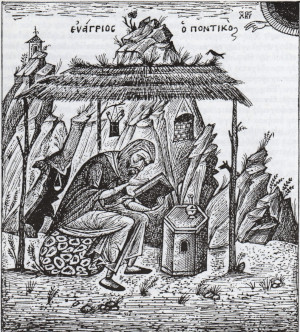
Evagrius the Solitary

Saints from East and West
Saints whose feasts are celebrated this month
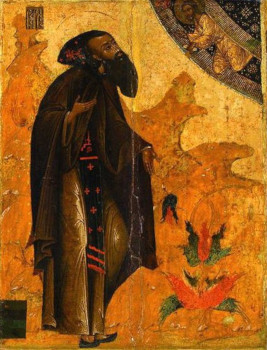
November 6/19 (Byzantine) - Saint Barlaam of Khutyn, Abbot
Saint Barlaam was born into a wealthy family at Novgorod and was christened Alexis. On the death of his parents he sold his property, giving away much to the poor, and went to live as a solitary at a place called Khutyn on the banks of the river Volga. In solitude the Monk Varlaam led a strict life, making unceasing prayer and keeping very strict fast. He was a zealous ascetic in his tasks -- he himself felled timber in the forest, chopped firewood and tilled the soil, fulfilling the words of Holy Scripture: "If any shalt not work, neither shalt he eat" (2 Thess. 3: 10). The fame of his virtues in tIme brought companions to him. Instructing those that came, the Monk Barlaam said: "My children, be observant against all unrighteousness, and neither envy nor slander. Refrain from anger, and give not money over for usury. Beware to judge unjustly. Do not swear falsely giving an oath, but rather fulfill it. Be not indulgent to the bodily appetites. Always be meek and bear all things with love. This virtue is the beginning and root of all good."
His wooden chapel was rebuilt in stone, and dedicated in honour of the Transfiguration. Pilgrims and other visitors flocked to the new monastery, among them the Duke Yaroslav, who became its benefactor. The Lord sent down upon the monk, for his service to others, the gifts of wonderworking and perspicacity.
St Barlaam did not live long after the final establishment of this community. Having provided for its continuance and upkeep, he nominated the monk Antony to succeed him, saying: "My beloved brother! God's blessing doth rest upon this monastery. And now into thine hand I transfer this monastery. Watch over and take concern for it. I do expire to the King of Heaven. But be not confused over this: while yet in the body I do leave you, still in spirit I shalt be with you always".
He died on November 6, 1193. His burying-place was the scene of miracles, and his relics were solemnly enshrined in 1452.
The life of Saint Barlaam of Khutyn was written by a Serbian monk named Pachomius; in the Russian Catholic use of the Byzantine Rite he is commemorated at the preparation of the holy gifts.

November 22 - Saint Cecilia
For over a thousand years Saint Cecilia has been one of the most greatly venerated of the maiden martyrs of the early Church and is one of those named in the canon of the Mass. Her "acta" state that she was a patrician girl of Rome and that she was brought up a Christian. She wore a coarse garment beneath the clothes of her rank, fasted from food several days a week, and determined to remain a maiden for the love of God. But her father had other views, and gave her in marriage to a young patrician named Valerian. On the day of the marriage, amid the music and rejoicing of the guests, Cecilia sat apart, singing to God in her heart and praying for help in her predicament. When they retired to their room, she took her courage in both hands and said to her husband gently, "I have a secret to tell you. You must know that I have an angel of God watching over me. If you touch me in the way of marriage he will be angry and you will suffer; but if you respect my maidenhood he will love you as he loves me." "Show me this angel," Valerian replied. "If he be of God, I will refrain as you wish." And Cecilia said, "If you believe in the living and one true God and receive the water of baptism, then you shall see the angel." Valerian agreed and was sent to find Bishop Urban among the poor near the third milestone of the Appian Way. He was received with joy and there appeared a venerable old man bearing a writing: "One Lord, one faith, one baptism, one God and father of all, above all, and in us all." "Do you believe this?" Valerian was asked, and he assented and was baptized by Urban. Then he returned to Cecilia, and found standing by her side an angel, who put upon the head of each a chaplet of roses and lilies. Then appeared his brother, Tiburtius, and he, too, was offered a deathless crown if he would renounce his false gods. At first he was incredulous. "Who", he asked, "has returned from beyond the grave to tell us of this other life?" Cecilia talked long to him, until he was convinced by what she told him of Jesus, and he, too, was baptized and at once experienced many marvels.
From that time forth the two young men gave themselves up to good works. Because of their zeal in burying the bodies of martyrs they were both arrested. Almachius, the prefect before whom they were brought, began to cross-examine them. The answers he received from Tiburtius he set down as the ravings of a madman, and, turning to Valerian, he remarked that he hoped to hear more sense from him than from his crazy brother. Valerian replied that he and his brother were under the charge of one and the same physician, Jesus Christ, the Son of God, who could impart to them His own wisdom. He then proceeded at some length to compare the joys of Heaven with those of earth, but Almachius told him to cease prating and to tell the court if he would sacrifice to the gods and go forth free. Tiburtius and Valerian both replied: "No, not to the gods, but to the one God to whom we offer sacrifice daily." The prefect asked whether Jupiter were the name of their god. "No, indeed", said Valerian. " Jupiter was a corrupt libertine and, according to the testimony of your own writers, a murderer as well as a criminal."
Valerian rejoiced when they were delivered over to be scourged, and cried out to the Christians present: "Roman citizens, do not let my sufferings frighten you away from the truth, but cling to the one holy God, and trample under your feet the idols of wood and stone which Almachius worships." Even then the prefect was disposed to allow them a respite in which to reconsider their refusal, but his assessor assured him that they would only use the time to distribute their possessions, thus preventing the state from confiscating their property. They were accordingly condemned to death and were beheaded in a place called Pagus Triopius, four miles from Rome. With them perished one of the officials, a man called Maximus, who had declared himself a Christian after witnessing their fortitude.
Cecilia gave burial to the three bodies, and then she in turn was called on to repudiate her faith. Instead she converted those who came to induce her to sacrifice; and when Pope Urban visited her at home he baptized over 400 persons there: one of them, Gordian, a man of rank, established a church in her house, which Urban later dedicated in her name. When she was eventually brought into court, Almachius argued with Cecilia at some length, and was not a little provoked by her attitude: she laughed in his face and tripped him up in his words. At length she was sentenced to be suffocated to death in the bathroom of her own house. But though the furnace was fed with seven times its normal amount of fuel, Cecilia remained for a day and a night without receiving any harm, and a soldier was sent to behead her. He struck at her neck three times, and then left her lying. She was not dead and lingered three days, during which the Christians flocked to her side and she formally made over her house to Urban and committed her household to his care. She was buried next to the papal crypt in the catacomb of St Callistus.
Pope St Paschal I (817-824) translated the relics of Saint Cecilia, together with those of Saints Valerian, Tiburtius and Maximus, to the church of Santa Cecilia in Trastevere. In 1599 Cardinal Sfondrati in repairing this church reinterred the relics of the four martyrs, the body of Cecilia being then still incorrupt and complete. Also in 1599 the sculptor Maderna was allowed to see the body and made a life-size statue of what he had seen, naturalistic and very moving: "Not lying upon her back like a body in a tomb, but upon the right side, as a maiden in her bed, her knees drawn together, and seeming to be asleep." This statue is in the church of Saint Cecilia, under the altar contiguous to the place where the relics were reburied in a silver coffin; it bears the sculptor's inscription: "Behold the most holy virgin Cecilia, whom I myself saw lying incorrupt in her tomb. I have made for you in this marble an image of that saint in the very posture of her body."
Today perhaps St Cecilia is most generally known as the patron-saint of music and musicians. At her wedding, the acta tell us, while the musicians played, Cecilia sang to the Lord in her heart. In the later middle ages she was represented as actually playing the organ and singing aloud.
.


Books to feed your faith!
Novena For the Relief of the Suffering Souls in Purgatory
$4.00
Novena For the Relief of the Suffering Souls in Purgatory We present this small treatise to pious persons, entreating them to peruse it. Long ago the Holy Ghost said: "It is a holy and wholesome thing to pray for the dead, that they may be loosed from their sins." (II Maccabees 12:46) Our Lord shed tears in seeing the tomb of Lazarus, and the Church, well acquainted with the feelings of her Divine Founder, is incessantly recommending charity for the Souls suffering in Purgatory.
One of her eminent doctors, St. Thomas of Aquinas, has said that: "Of all prayers, the most meritorious, the most acceptable to God are prayers for the dead, because they imply all the works of charity, both corporal and spiritual." But there are many people unconscious of the fact that charity for the "Poor Souls" is profitable to the living as well as to the dead. It is the teaching of the most learned theologians, viz: St. Alphonsus Liguori, Sylvius, Robert Bellarmine, Bonacina, and Suarez. "It is true," says St. Alphonsus, "they are unable to pray or merit anything for themselves, yet, when they pray for others, they are heard by God." Let us refer to Bellarmine: "The Souls in Purgatory," says he, "can pray for those, who address to them their petitions, and obtain from God help, forgiveness, assistance against temptations, and, all favors, both temporal and spiritual, which they may need." Many Saints have experienced this wonderful assistance.
Purgatory Surveyed
$14.95
This quaint, but forcible and edifying book, was partly translated, partly, as the translator acknowledges, "disposed, abridged, or enlarged," from a treatise by Father Stephen Binet, a French Jesuit, which is entitled "De Festat heureux et malheureux des ames souffrantes du Purgatoire, ct des moyens souverains pour n'y aller pas, ou y demeurer fort peu; ou sont traictees toutes les plus belles questions du Purgatoire." Paris, 1625, in 12. Douay, 1627, in 24.
Father Binet was born at Dijon in 1569, entered the Society in 1590, and, having been successively Rector of its principal houses in France, died at Paris, 1639. This treatise is numbered 20 out of 36 ascetical works composed by him, and given in De Backer's Bibliotheque des Ecrivains de la Compagnie de Jesus. Their titles make one wish that some competent pen may be found to reproduce them for us in our own tongue.
The translator, who simply signs himself by the initials, R.T., was Father Richard Thimelby, also of the Society of Jesus. In those evil days, when it was death to be known to say Mass, or to reconcile anyone to the true Faith, almost every priest was furnished with an alias and Father Thimelby accordingly went sometimes by the name of Ashby. He is described in Dr. Oliver's "Collections" as being "of a genteel and ancient family in Lincolnshire." This is abundantly justified by notices occurring of the family, at two different periods of English history. Thus: (I.) In Sir S. Meyrick's Heraldic Visitations of Wales, and part of the Marches, Mention is made of Richard Thumbleby (Thimbleby), knight, who was one of the bailiffs of Harddlech, or Harlech, in the county of Lincoln, and son to John Thumbleby, armiger to King Henry V.
The Rosary Encyclicals of Pope Leo XIII
$14.95
Pope Leo XIII, who reigned for over a quarter of a century, following the second longest reigning pope in history, Pope Pius IX, has come to be known as the Pope of the Rosary. During his pontificate he wrote twelve wonderful Encyclicals on the Rosary, encouraging Catholics to recite the Rosary with devotion and profit for their souls. Leo saw the Rosary as a cure for the ills of today. If we follow his advice and recite the Rosary with true devotion, we will see a cure of our own spiritual ills. From curing our own spiritual ills and working to become saints, we can influence those around us to do the same and bring about restoring the world to where it ought to be.
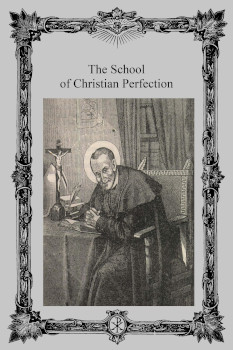
The School of Christian Perfection
$6.50
To be pleasing and acceptable in the sight of God, it is not enough merely to believe all that our holy faith teaches us; we must, moreover, regulate our life in accordance with our belief. Pico of Mirandola says: “It is certainly great folly not to wish to believe the Gospel of Christ; but it would be greater folly still to believe it and to live as if you did not believe it.”
Authored by Saint John Eudes, Introduction by Fulton J Sheen According to the Roman Breviary, Saint John Eudes is the author of devotion to both the Sacred Heart of Jesus and the Immaculate Heart of Mary. His two works on these two devotions are classics. However, he is also a master to the spiritual life; an unknown master. Many are familiar with the works of Saint Bonaventure, Saint Alphonsus Ligouri and Saint Louis de Montfort to name just three of the masters of the spiritual life. And yet, Saint John Eudes has a lot to contribute.
For More Good Traditional Catholic Books:
Brother Hermenegild's Spiritual Bookshelf
Pope Michael's Books
Christ the King Library


Brother Heinrich Treacher's Butternut Squash Soup
The perennial classic!
Prep: 25 minutes
Cook: 45 minutes
Ready In: 1 hour 10 minutes
Ever a welcome addition to any autumn table, Brother Treacher's own recipe for butternut squash soup is sure to please everyone who enjoys butternut squash soup made according to Brother Treacher's own recipe.
Ingredients
2 tablespoons butter
1 small onion, chopped
1 stalk celery, chopped
1 medium carrot, chopped
2 medium potatoes, cubed
1 medium butternut squash - peeled, seeded, and cubed
1 (32 fluid ounce) container chicken stock
salt and freshly ground black pepper to taste
Directions
Melt the butter in a large pot, and cook the onion, celery, carrot, potatoes, and squash 5 minutes, or until lightly browned. Pour in enough of the chicken stock to cover vegetables. Bring to a boil. Reduce heat to low, cover pot, and simmer 40 minutes, or until all vegetables are tender.
Transfer the soup to a blender, and blend until smooth. Return to pot, and mix in any remaining stock to attain desired consistency. Season with salt and pepper.
Great Aunt Henrietta Yoder's Sweet Potato Pie
Just like you remember!
Cook: 1 hour 50 minutes
Ready In: 2 hours 20 minutes
Who can forget having a good slice of Great Aunt Henrietta's sweet potato pie out at the old home on Route 3? The taste and the memories can be yours again with Great Aunt Henrietta's own recipe!
Ingredients
1 (1 pound) sweet potato
1/2 cup butter, softened
1 cup white sugar
1/2 cup milk
2 eggs
1/2 teaspoon ground nutmeg
1/2 teaspoon ground cinnamon
1 teaspoon vanilla extract
1 (9 inch) unbaked pie crust
Directions
Boil sweet potato whole in skin for 40 to 50 minutes, or until done. Run cold water over the sweet potato, and remove the skin.
Break apart sweet potato in a bowl. Add butter, and mix well with mixer. Stir in sugar, milk, eggs, nutmeg, cinnamon and vanilla. Beat on medium speed until mixture is smooth. Pour filling into an unbaked pie crust.
Bake at 350 degrees F (175 degrees C) for 55 to 60 minutes, or until knife inserted in center comes out clean. Pie will puff up like a souffle, and then will sink down as it cools.

Video sermons and instructions: Both brand new and from years past!
Purgatory
Visiting Cemeteries
Thanksgiving 2013
Sacred Moments - Trust and Obey
Lamp & Light: Matthew 13 pt 2


VIE CATHOLIC RADIO EVENTS FOR NOVEMBER
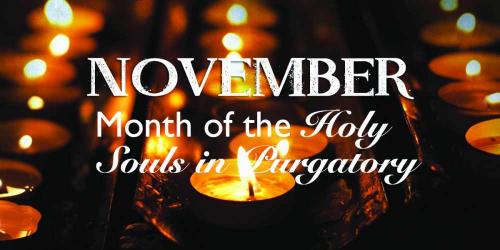
November is the month of Holy Souls in Purgatory, those faithful Christians who have died and gone before us but who still must fulfill the biblical principle of reaping and sowing concerning their sins. (Galatians 6:7) When that principle has not been fulfilled here on earth, then the time they spend in Purgatory purges them so that they may enter Heaven free from all the effects that their sin caused. Praying for the dead, especially for those we have known, is a requirement of Christian charity. Our own prayers and sacrifices can be offered up to relieve their suffering. We that in mind. We at Vatican In Exile Radio want to tell you about the new programing for the month of November.
Sermons on the Holy Souls:
Each week we will have a different sermon by different preachers, on the subject of purgatory. Then after each sermon you will be able to join us in a purgatory prayer for the Holy Souls, asking God to have mercy on the souls of the dead, to purify them by the fire of His charity, and to bring them into His presence for all eternity. We do this because 2 Maccabees 12:46 says, “it is a holy and a wholesome thought to pray for the dead that they may be loosed from their sins”
Stations of the Cross:
The Stations of the Cross are a 14-step Catholic devotion that commemorates Jesus Christ's last day on Earth as a man. The 14 devotions, or stations, focus on specific events of His last day, beginning with His condemnation. At each station, the individual recalls and meditates on a specific event from Christ's last day. Specific prayers are recited, then the individual moves to the next station until all 14 are complete. The Stations of the Cross are commonly found in churches as a series of 14 small icons or images. They can also appear in church yards arranged along paths. The Stations of the Cross is another way to pray for the Holy Souls who are in purgatory. Each Friday, during the month of November you can do the Stations of the Cross along with us.
The Angelus and The Rosary:
Everyday the Angelus, which commemorates the Incarnation of Jesus, and the Rosary, which is a devotion in honor of the Virgin Mary, is said morning, noon and night. Follow along with us in prayer everyday!
And don't forget the other great programing that you can hear!
Lamp and Light:
Lamp and Light Bible study takes the listener through the entire Bible, threading back and forth between the Old and New Testaments. Be sure to tune in so that you will not miss any part of the Bible study.
Sacred Moments:
It has been said that “The higher goal of spiritual living is not to amass a wealth of information, but to face sacred moments.” and that is what our desire is for you. To experience through our weekly devotion, a sacred moment. One that you can savor through out the day. One that reminds you that God is alive and active in your live.
Sunday Sermon:
You can listen to four Sunday Sermons, including one by Saint Alphonsus, each day that could cause permanent life changes by stepping on your toes!
Life Is Worth Living:
Fulton Sheen's renowned and inspiring television series was watched by millions of viewers from all walks of life and every religious belief. His timeless insights give wise, personal and inspiring guidance on the problems affecting our lives in today’s world. His talks cover an amazing variety of subjects, from the character of the Irish to the handling of teenagers. He discusses education, Christianity, relativity, and world affairs. He speaks about love, conscience, fear, motherhood, work. He tells amusing anecdotes, recites poetry, and ponders the fate of the free world as well as America’s destiny.
Fulton Sheen's Catechism:
...is a 50 part series on the fundamental teachings of the Catholic Church recorded in 1965 in the privacy of his own study. This Catechism program is truly priceless! Fulton Sheen's captivating voice and message comes through loud and clear, even for today.
Catechism Corner:
Catechism Corner discuss the lessons given in Fr. Cogans' Catechism book called “A Brief Catechism for Adults”. You won't want to miss a lesson!
Family Theater:
Family Theater is a dramatic radio show which was produced by Family Theater Productions, a film and radio studio extension of the Family Rosary Crusade founded by the Holy Cross Priest, Father Patrick Peyton, CSC, as a way to promote family prayer. The motto of Holy Cross Family Ministries is "The family that prays together stays together."
Your Story Hour/The Bible Comes Alive:
Your Story Hour produces family-friendly radio dramas based on the Bible, historical heroes, and true-to-life adventures. Our stories--brought to life by talented voice actors, descriptive sound effects and compelling music--teach Christian values, positive character traits and principles for good decision-making.
Ranger Bill:
Ranger Bill is a Christian radio program from the 1950s. Ranger Bill stars Miron Canaday as the title character and Stumpy Jenkins. And Ed Ronne Sr. as Grey Wolf. The main character, Ranger Bill, is a forest ranger located in the town of Knotty Pine along the Rocky Mountains. The show describes the various tales of the adventures of Ranger Bill and his friends
Plus More!:
Such as Paul Harveys' The Rest of The Story, Keys For Kids, Creation Moments, and Life Line are just some of the little jewels you can hear.
Music To Tickle Your Ears:
We have a whole genre of musical programs. Such as Friday Night Gospel Bluegrass, Saturday Night Alive-Praise and Worship, and Sounds of Joy-Sacred Music. That doesn't count the Gregorian Chant heard every day four times a day!
Check your program guide to see times and days for each program.


“There's No Place Like Home!”
By the time she had returned from her adventures in Oz, Dorothy had learned that “There’s no place like home.” As we discover more planets outside the solar system, we are learning that there’s no place like Earth or even the solar system. While we usually think of planets orbiting a star, astronomers are now finding planets that simply float through space without a home star.
Of the 15 known homeless planets, 13 of them were recently found in the Orion Nebula. These most recent discoveries were made using a specialized camera that examines the heavens for infrared and near infrared light. Scientists speculate that the planets might have escaped from orbit around some star. Others speculate that the planets are failed brown dwarf stars. To become a brown dwarf, a body has to be at least as big as 13 Jupiters. The smallest of these planets is as big as 8 Jupiters, making its gravity far too strong for any life as we know it. To make matters worse, temperatures on these planets would not support life, either. Analysis of the light coming from these planets reveals that their surface temperatures are nearly 5000° F.
These homeless planets are part of God’s illustration to us of how He specially designed our solar system and Earth just for us. The Bible tells us that the Word made flesh, our Lord and Savior Jesus Christ Who gave His life for us, was also the Instrument God used to create the entire universe.
Prayer: Thank You, Lord, for making us a very special home. Amen.

Catechism Catch-Up
The Communion of Saints
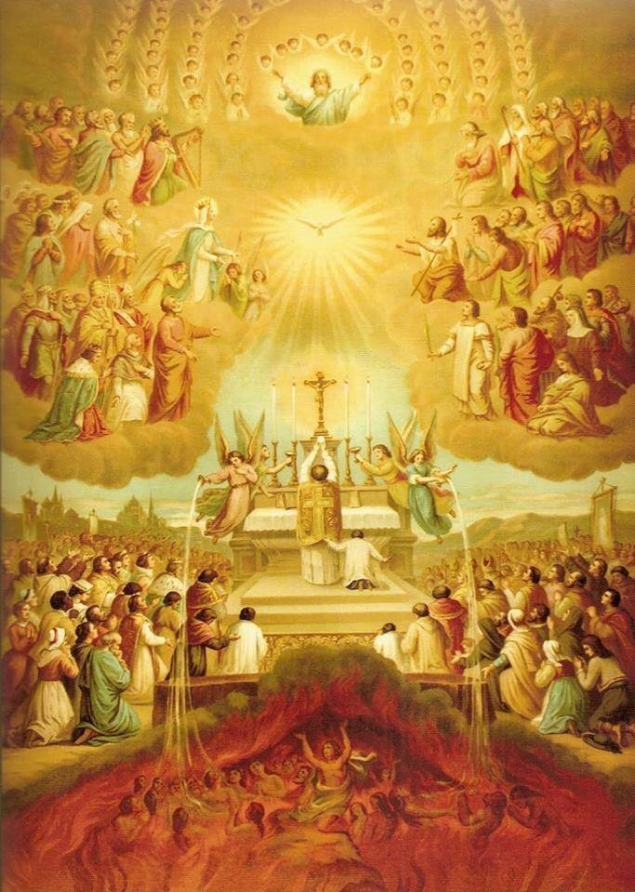
The communion of saints is the spiritual solidarity which binds together the faithful on earth, the souls in purgatory, and the saints in heaven in the organic unity of the same mystical body under Christ its head. 1
The doctrine of the "Communion of Saints" helps to explain the Church. The baptized all form one body and the good of each is shared by all. "Because Christ (the Church's most important member) is the head, his riches are given to all the members through the sacraments" (St. Thomas Aquinas). 2
The disciples "were persevering in the doctrine of the apostles, and in the communication of the breaking of bread, and in prayers." (Acts 2:42).
There are five Communions:
Communion in the faith
This faith of the Church was received from the apostles.
Communion of the sacraments
Sacraments, especially Baptism, link all the faithful to each other and to Christ. The word "communion" "is especially suited for the Eucharist which brings about this communion.
They therefore that received his word, were baptized; and there were added in that day about three thousand souls. (Acts 2: 41)
And continuing daily with one accord in the temple, and breaking bread from house to house,(Acts 2:46)
Communion of charisms
These are "And the manifestation of the Spirit is given to every man unto profit.", (1 Corinthians 12:7). That is for profit for the whole Church.
We see an example of this in (Acts 2:43) And fear came upon every soul: many wonders also and signs were done by the apostles in Jerusalem, and there was great fear in all.
Communion of common goods
Whatever a Christian has is really possessed in common with everyone else.
And all they that believed, were together, and had all things common. Their possessions and goods they sold, and divided them to all, according as every one had need. (Acts 2:44-45)
Communion in charity
"If one members suffers, all suffer together; if one member is honored, all rejoice together" (1 Cor 12:26).
Because of the Communion of the saints, that is "Being in one accord" (vs 46) in these areas, and because they were "Praising God", "and having favour with all the people",in other words having a good testimony before the people, Scripture says that, "The Lord increased daily together such as should be saved" (Acts 2:47)
There are Three States of the Church.
There is the Militant Church, The Suffering Church, and the Triumphant Church. Lets begin by studying the Militant Church.
Militant Church
The Militant Church is the church members on earth who struggling against the world, the flesh and the devil.
Labour as a good soldier of Christ Jesus. No man, being a soldier to God, entangleth himself with secular businesses; that he may please him to whom he hath engaged himself. (II Timothy 2:3-4)
For our wrestling is not against flesh and blood; but against principalities and power, against the rulers of the world of this darkness, against the spirits of wickedness in the high places.(Ephesians 6:12)
What do we mean by Principalities and Powers, the rulers of this darkness, spirits of wickedness in the high places?
Principalities:
The concept of principalities is understood by the Greek word "arch" meaning chief or ruler. These principalities are ruling devil spirits possessing executive authority or governmental rule in the world. As we will see, this ruling power usually involves a particular nation, people or race. There are evil angels ruling the kingdoms of the world that oppose the truth of God, and of which Satan is the chief prince or ruler, of both the world system and its organization of demons, as noted in the gospel of Matthew 12:24.
"But the Pharisees hearing it, said: This man casteth not out the devils but by Beelzebub the prince of the devils."
In Matthew 12:24, the devil is called "Beelzebub" meaning lord of the dwelling, in which these wicked spirits are subject to and operate under Satan's dominion. They, like their chief prince, direct, control, rule and carry out the present darkness of this world.
The Noah Webster's American Dictionary of the English Language 1828 defines principalities as:
1. The territory of a prince; or the country which gives title to a prince.
2. A prince; one invested with sovereignty.
The idea of prince devil spirits ruling or controlling a region is supported in the Old Testament book of Daniel, chapter 10. Daniel is visited by an angel in response to his prayer to God. This angel, who was sent by God to answer Daniel's prayer, was delayed for 21 days because of a battle that took place between God's angel and "a prince of the kingdom of Persia." Daniel reveals the angel's message in the following verses:
Daniel 10:12-13
"And he said to me: Fear not, Daniel: for from the first day that thou didst set thy heart to understand, to afflict thyself in the sight of thy God, thy words have been heard: and I am come for thy words. But the prince of the kingdom of the Persians resisted me one and twenty days: and behold Michael, one of the chief princes, came to help me, and I remained there by the king of the Persians.."
"There is no doubt whatsoever that the prince of the kingdom of the Persians was the adversary power that befriended the Persian nation, which was hostile to the people of God. And he stood in the way of the benefit that he saw the archangel was going to procure in response to the request that the prophet had made of the Lord, being envious lest the angel's salutary consolation come to Daniel too quickly and lest he comfort the people of God over which the archangel Michael had been sent."-St. John Cassian
The spiritual battle, for this angel, was of such magnitude that Michael, the archangel of God and designated prince of Israel, assisted the angel in battle. Another enemy of God, the prince of Greece, is also mentioned in the verses below.
Daniel 10:20-21
"And he said: Dost thou know wherefore I am come to thee? and now I will return, to fight against the prince of the Persians. When I went forth, there appeared the prince of the Greeks coming. But I will tell thee what is set down in the scripture of truth: and none is my helper in all these things, but Michael your prince."
The book of Daniel gives us an excellent example of how these unseen spiritual entities fight to increase and maintain their realms of influence and control in order to hinder God's purposes. In addition, as previously stated, these princes are named after the nations or rather their principalities in which they rule.
It is Satan's purpose to deceive these nations and to keep them from obtaining a knowledge of God's truth and salvation through His Son Jesus Christ. In the book of Apocalypse / Revelation, chapter 20, Satan is depicted as a deceiver of nations. The Greek word for deceive is planaho, and according to one Greek Dictionary, this word means to "cause to roam from safety, truth or virtue, go astray, seduce, wander, and to be out of the way."
Satan's major success, in deceiving a nation, is due to a lack of discernment on the part of the people. The people are blind to the invisible forces of supernatural evil that are operating and influencing their visible human agents of political, social, religious and philosophical programs. Satan's greatest victory would be to convince the world that he just doesn't exist. However, God warns us to be alert and vigilant "because your adversary the devil, as a roaring lion, goeth about seeking whom he may devour." (1 Peter 5:8).
The devil controls the kingdoms of the world and we are not to underestimate his influence and power, nor believe that this is the will of God. God is telling us to "stand" against these evil forces by equipping ourselves with the power of God.
Powers:
The Greek word for "powers" is exousia which means derived or conferred authority, the warrant or right to do something, or delegated influences of control. Although the word "powers" is left unclear as to Paul's precise meaning in the verse, this expression is used elsewhere in scripture to infer the powers that be in authority. In keeping with the context of this verse, this would include all high-ranking, evil supernatural powers and the power of sin and evil in operation in the world. The fruits of this type of evil can probably be seen in drug cartels, gross poverty, plagues, terrorism, and other heinous crimes against humanity, even toward the animal kingdom.
Rulers of Darkness:
Some Christian authors also associate "world rulers" with magic and demonic pagan gods such as the Ephesians' Artemis and seems to be in line with the pagan culture of ancient times, in which temples were dedicated to these demonic pagan deities. And let us not forget "Molech," the national god of the Ammonites' in Old Testament history. The priests would place the sacrificial children into the brass hands of the image, in which these helpless victims would slip into the fire below. This is described in Scripture as "according to the idols of the Nations" (4 Kings DRB/2 Kings 16:3 ).
Spirits of Wickedness:
The Greek word for wickedness is ponēria and means depravity and particularly in the sense of malice and mischief, plots, sins, and iniquity (Greek Dictionary).
Malice is defined as:
1. A desire to harm others or to see others suffer; extreme ill will or spite.
2. Law -- The intent, without just cause or reason, to commit a wrongful act that will result in harm to another.
Satan is also depicted as the prince of the power of the air
Since Satan is the prince of the power of the air, these wicked spirits, in high places, are often understood to be the collective organization of all of Satan's devil spirits. These malevolent spirits work evil and mischief and operate in our atmosphere. They operate as close to the very air we breathe, and reach to realms beyond. All kinds of spiritual filth are propagated , in these realms, for the purpose of humanity's deception and subsequent destruction. Prior to becoming a Christian we too walked according to the prince of the power of the air.
Ephesians 2:2-3
Wherein in time past you walked according to the course of this world, according to the prince of the power of this air, of the spirit that now worketh on the children of unbelief: In which also we all conversed in time past, in the desires of our flesh, fulfilling the will of the flesh and of our thoughts, and were by nature children of wrath, even as the rest:
As Catholics we are delivered from the power of the prince of the air, and from the sinful nature that once ruled our path in life.
When we received God's Holy Spirit, at the moment of our baptism and our conversion to Christ, we were translated from the kingdom of darkness to the kingdom of God's light, in which we now have God in Christ in us. We are continually delivered and empowered by God as we walk according to His Word and Spirit that He has given us, and as we partake in the Sacraments he has given us through His Holy Church.
As we do this, we take our seat in the heavenlies with Christ, for scripture reads,
Ephesians 2:5-7
Even when we were dead in sins, hath quickened us together in Christ, (by whose grace you are saved,) And hath raised us up together, and hath made us sit together in the heavenly places, through Christ Jesus. That he might shew in the ages to come the abundant riches of his grace, in his bounty towards us in Christ Jesus.
Galatians 5:16-17
I say then, walk in the spirit, and you shall not fulfill the lusts of the flesh. For the flesh lusteth against the spirit: and the spirit against the flesh; for these are contrary one to another: so that you do not the things that you would.
I John 4:4-5
You are of God, little children, and have overcome him. Because greater is he that is in you, than he that is in the world.They are of the world: therefore of the world they speak, and the world heareth them.
[Next session we will study the armour of God that each of us must wear as the Militant Church.]
1 http://www.newadvent.org/cathen/04171a.htm
2 http://www.catholicity.com/catechism/the_communion_of_saints.html

Living Catholic:
How can I learn to control my tongue?
Keys to Taming Your Tongue: taking responsibility for your words
You probably know the pain of regretting words you have spoken: words of pride, dishonesty, envy, gossip, or anger. Although you can seek to restore bruised relationships through repentance and forgiveness, spoken words can never be retrieved. Scripture warns,“Let no evil speech proceed from your mouth; but that which is good, to the edification of faith, that it may administer grace to the hearers.”(Ephesians 4:29).
Consider the following keys for taming the tongue:
1. Rely on God’s strength to aid you.
With human efforts alone, no one can tame his tongue. “But the tongue no man can tame, an unquiet evil, full of deadly poison.”(James 3:8). Only by the grace of God in your life can you seek to control your speech. “I can do all these things in him who strengtheneth me.” (Philippians 4:13).
2. Dedicate your heart and tongue to the Lord each day.
You face new circumstances and new conversations every day. Regularly acknowledging your need for discernment and God’s grace helps you remain conscious of your words. “And the words of my mouth shall be such as may please: and the meditation of my heart always in thy sight. O Lord, my helper, and my redeemer.” (Psalm 18:15).
3. Put your heart in tune with God’s Spirit by daily reading His Word.
“All scripture, inspired of God, is profitable to teach, to reprove, to correct, to instruct in justice, That the man of God may be perfect, furnished to every good work. ”(II Timothy 3:16–17).
4. Meditate on Scriptures that address the power of words.
By studying Scriptures about the tongue, you will gain insights into the power of your words. Memorizing and meditating on these verses will strengthen your resolve to speak with grace. “Thy words have I hidden in my heart, that I may not sin against thee.” (Psalm 118:11).
5. Assume responsibility for every word you speak.
God desires that you speak the truth (see Ephesians 4:25 and Psalm 14:2,3) and that you keep your word (seeMatthew 5:37). He will hold you responsible for what you speak.“. . .every idle word that men shall speak, they shall render an account for it in the day of judgment.”(Matthew 12:36).
6. Ask those around you if you use words that are offensive.
Your family, friends, co-workers, and acquaintances can observe the effects of your words and attitudes. Ask them about your speech patterns and evaluate the observations they share. (See Proverbs 27:6, 17.)
7. Commit yourself to giving a good report and when it is necessary, to following Biblical principles of correction.
“Thou shalt not be a detractor nor a whisperer among the people. Thou shalt not stand against the blood of thy neighbour. I am the Lord. Thou shalt not hate thy brother in thy heart, but reprove him openly, lest thou incur sin through him. Seek not revenge, nor be mindful of the injury of thy citizens. Thou shalt love thy friend as thyself. I am the Lord.” (Leviticus 19:16–18). “But if thy brother shall offend against thee, go, and rebuke him between thee and him alone. If he shall hear thee, thou shalt gain thy brother.” (Matthew 18:15).
8. Fulfill past promises, and think carefully before making any new promises.
You need to fulfill the promises you have made, even when doing so requires unforeseen sacrifice. God will bless the one who “. . .sweareth to his neighbour, and deceiveth not; ” (Psalm 14:4). Jesus said, “ But let your speech be yea, yea: no, no: . . . ” (Matthew 5:37).
9. Ask for forgiveness for any unloving words or attitudes.
“ For in many things we all offend. If any man offend not in word, the same is a perfect man. He is able also with a bridle to lead about the whole body. . . .”(James 3:2).
When you speak words that you shouldn’t have spoken, seek forgiveness. “Let all . . . clamour, and blasphemy, be put away from you, with all malice. And be ye kind one to another; merciful, forgiving one another, even as God hath forgiven you in Christ. ” (Ephesians 4:31–32).
10. Learn to speak words that will encourage, comfort, inspire, and edify.
Ask God to guide you to speak words that will honor Him and accomplish His purposes. “Let your speech be always in grace seasoned with salt: that you may know how you ought to answer every man. ” (Colossians 4:6). “Who is a wise man, and endued with knowledge among you? Let him shew, by a good conversation, his work in the meekness of wisdom.”(James 3:13).
Your words indicate what is in your heart. (See Luke 6:45.) In your efforts to control your tongue, follow the Apostle Paul’s admonition:“whatsoever things are true, whatsoever modest, whatsoever just, whatsoever holy, whatsoever lovely, whatsoever of good fame, if there be any virtue, if any praise of discipline, think on these things.”(Philippians 4:8). When the thoughts of your heart are focused on what is good and true, your words will reflect it, bringing honor to God and to others.


Pray for the Holy Father! Pray with the Holy Father!
- Some of you may know that we operate a virtual book store online in order to support ourselves and the work of the Catholic Church. Our book store is being shifted from one company to another, which has different payment policies. The new company pays a month later than the old company. The money we earned in October will be paid to us at the end of November and used for our December operations. The money earned in November will be paid to us at the end of January not December. Therefore we will receive very little at the end of December in order to continue our work. We ask prayers that God will help us find a way to make up this short fall of about $2,000.
Donate here! - Your prayers are asked this month and every month for the intentions of the Holy Father, Pope Michael.
- Be sure to keep the new foundation of St. Helen Catholic Mission in your prayers. Why not go on over to the site now and see what they have to offer and how you might be able to help!
- Your prayers are asked for the newly-ordained Father Francis Dominic as he embarks upon the important work entrusted to him within the Church.
- Please pray for Brother Stephen's wife who is having health issues. May God grant the swift grace of His healing!
- Pray for those outside the Church and those who do not know God, that they may see the light of grace and be led safely home to the refuge of the Holy Catholic Church.
- As always, we also ask that you pray for yourself! Never forget your own state of soul. God is calling you to His service in His love. We know that our Lord can count on you to answer.
- We are all praying especially for you, too. May you correspond with every grace of God!
- In what other needs or intentions may we pray for you? Let us know!



To Donate by Mail:
Our address is
Vatican in Exile
829 NE Chester
Topeka, Kansas 66616
Make Checks payable to:
Vatican in Exile

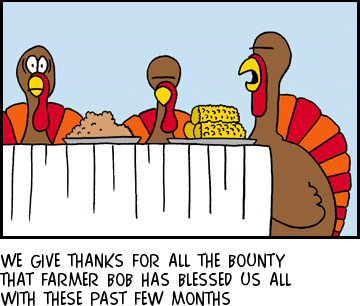
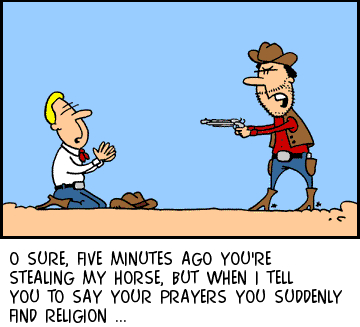

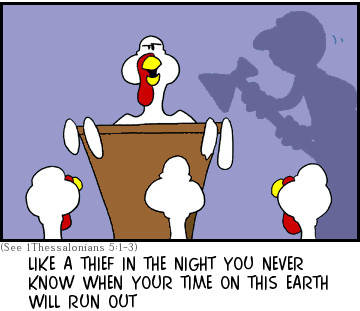
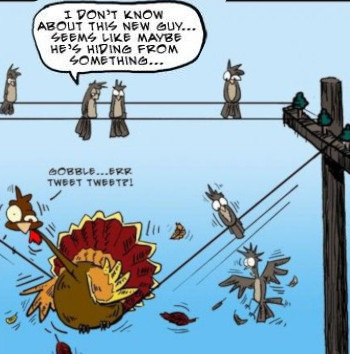

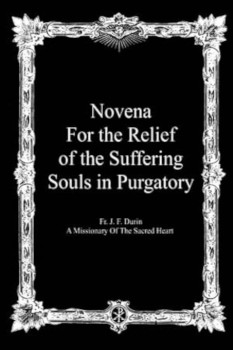
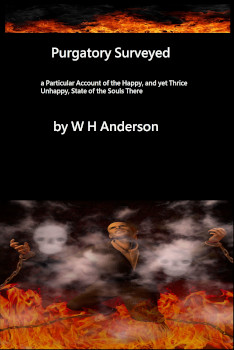
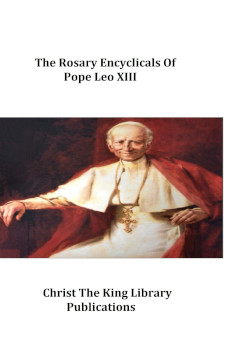





 Follow
Follow


